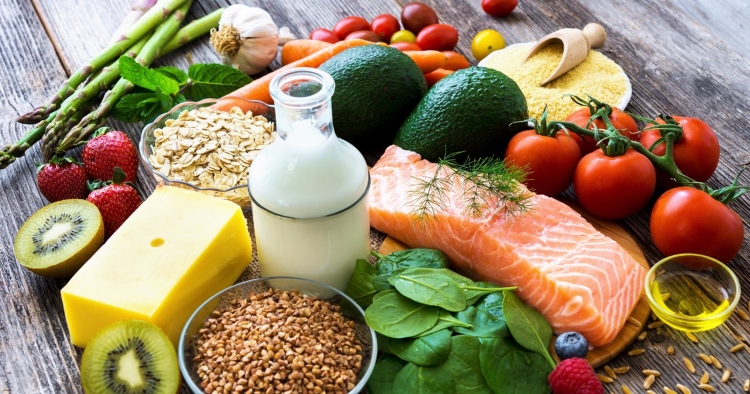With 90 % of serotonin receptors located in the gut, it’s no big surprise that what we eat can strongly influence mood.
A balanced diet filled with natural, whole foods laden with vitamins and minerals can affect mood positively in the long term, with high-protein diets increasing motivation and concentration.
Alternatively, diets heavy on processed foods, saturated fats and empty calories can lead to weight gain, lethargy and low mood.
If you want to overhaul your nutrition program and make healthier choices to improve your mood, read on as we share just how literally you are what you eat!
Refined carbs linked to depression and anxiety
Often the short-term positive moods caused by some foods make us forget our long-term goals of having a great figure and feeling healthy. We do not consider how the sugars found in lollies, cake, ice cream and sugary drinks will affect our minds.
When we’re sad or lonely, we head for the bar of chocolate or tub of ice cream for the release of the happy hormones, dopamine and serotonin. However, the initial positive effect soon wears off, leaving some rather unpleasant long-term results such as anxiety and depression.
According to this study, there was a link between men with depression and high sugar intake after ten years. For women, they also discovered a link between sugar intake and recurrent depression after five years. Still, it was not as high as with men. The long-term effects of unbalanced diets are not conducive to mental health.
Sugar can kill the romance
Too much sugar can lead to a proliferation of mouth bacteria that feed on the sugars, causing bad breath. It can affect our mood when people we’d like to be close to back off.
Uncontrolled sugar intake combined with a sedentary lifestyle can also affect weight which can in turn lead to lack of confidence during intimacy.
The average recommended calorie intake is 2000 for women and 2500 for men. The reason for the difference is that men naturally have more muscle than fat, and muscle burns calories faster. Consuming too many calories regularly can kill romance when a person finds it difficult to move, suffers from low self-esteem and a lowered sex drive due to weight gain.
Spicy food can make you assertive and impulsive
Spicy food works on the pain/pleasure part of our brain. First, our brains interpret the spiciness as heat that could burn us, then sends out endorphins to make us feel better and soothe the pain.
This euphoria enhances our mood – so when we seek spicy food for that endorphin hit, we’re not after the actual burn from the capsaicin content in the chili peppers.
According to a study published in the Harvard Business Review, even seeing pictures of spicy food, never mind eating it, caused people to manifest a higher propensity for aggression, assertiveness and impulsive actions.
Anti-inflammatory food enhances mood
For those experiencing inflammatory diseases such as arthritis, according to a report by Dr Brian Paris, who runs the Pain and Joint Relief Centre in Rockville, Maryland, USA, a diet high in avocado, olive oil, blueberries, tart cherries, nuts, fish, seaweed, broccoli, papaya, green tea and fermented food such as sauerkraut and kimchi may ease the pain.
Dr. Paris follows a holistic route to pain relief that does not include surgery and prescription drugs and has had great success with his methods.
Whole foods lower the risk of depression
According to a study published in the British Journal of Psychiatry, eating whole food that is organically grown, like fruit, vegetables, grains, and nuts, can lower the risk for depression in middle-aged people when linked with responsibly harvested fresh fish.
The same study found that a diet heavy in processed food – including processed meats, fried foods and sweetened desserts led to an increase in self-reported depression five years on. The scientists used the Centre for Epidemiological Studies Depression (CES–D) scale for both assessments.
Colorful food enhances the mood
We eat with our eyes, and the more naturally colorful the food is, the happier it makes us. What stimulates your sense of sight more – a grey stew, or a plate rich with orange sweet potatoes, stir-fried French cut green beans and the pink of fresh salmon encrusted with a golden topping of nuts and herbs? The phytochemicals which provide the colour also supply us with the vitamins, minerals, antioxidants and fiber we need to stay healthy.
When we are healthy, we are happy. So, eat up those gorgeous, super-fresh brightly coloured foods, like cranberries, blueberries, pumpkins, beetroot, pineapple and watermelon, for a mood-enhanced day.






